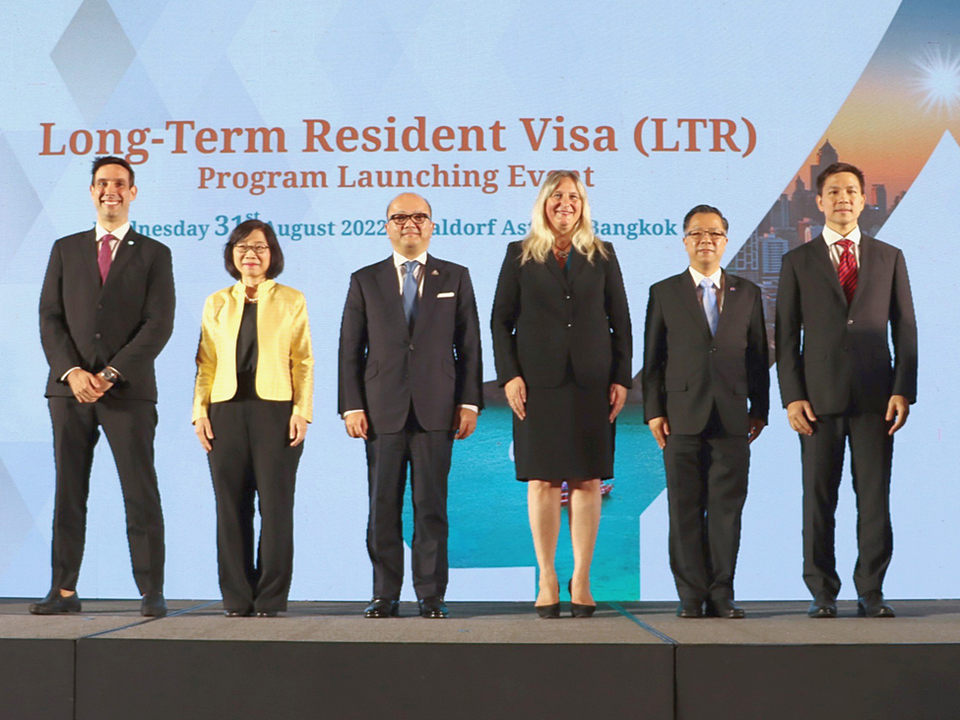
The Board of Investment launched its 10 year residence program on September 1. So far, most of the inquiries have concerned generous tax exemptions and brand-new digital work permits for professionals working in industries such as electric vehicles, smart electronics and futuristic technology. The BOI has concentrated its publicity to target high-skilled foreigners interested in far more relaxed employment rules in return for their contributions to Thailand’s economic recovery. “That’s our key market,” said Narit Thersteerasukdi, the Board’s deputy secretary general.
But the LTR or Long Term Residence visas are also aimed at two groups of non-working foreigners, namely the wealthy global traveller (rich millionaires-plus with time on their hands) and retirees aged over 50 (assumed to have an income of at least US$80,000 per year and/or extra cash to invest). Pattaya Mail spoke to a group of retired farang who were renewing their one year extensions of stay, but they did not seem impressed by the latest option. “One stop shops and paying less Thai income tax aren’t the top concerns of retirees or foreigners married to Thai women,” said Dave Ellison who has lived in Pattaya for 10 years.
Others concurred. “Why anyone would want to invest so much money in an LTR when there are much cheaper annual retirement options, or even the Elite visa, I just don’t know,” said Joachim Meyer. He pointed out that the LTR perks such as being exempt from the 90 days reporting or re-entry permits weren’t worth the entry qualifications. “Not to mention the LTR registration charge of 50,000 baht and the requirement have to annual medical insurance of US$50,000 which are not required for most other visas.”

Early promises that an LTR visa would bring the right to buy freehold property, rather than condominium units, have failed to materialize. There has yet been no public statement, but the working model appears to be for some LTR visa holders, who can show 40 million baht in cash or investments, having the right to buy one rai of land. But even that will require the permission of the BOI on a case-by-case basis. Nor is there any sign that an LTR visa will qualify you for a second passport or permanent residence status.
In seeking to promote Thailand to the super-rich and/or highly-paid professionals, authorities have to compete with other Asian countries. Singapore has introduced its Overseas Networks and Expertise Pass which offers a five year visa to top earners. Indonesia is offering remote-workers (digital nomads) a straightforward no-tax deal, whilst Malaysia’s long-established second-home program is easier to digest than Bangkok’s BOI bureaucracy. Cambodia is offering 10 year visas, property perks and even the possibility of citizenship to investors, although the details are admittedly still cloudy. Thailand’s LTR visas are the first serious attempt in many years to encourage high-value foreigners to base here. But there are still too many questions and not enough answers.
 |
 |
 |





